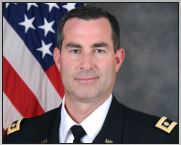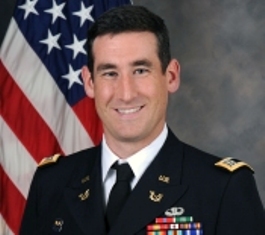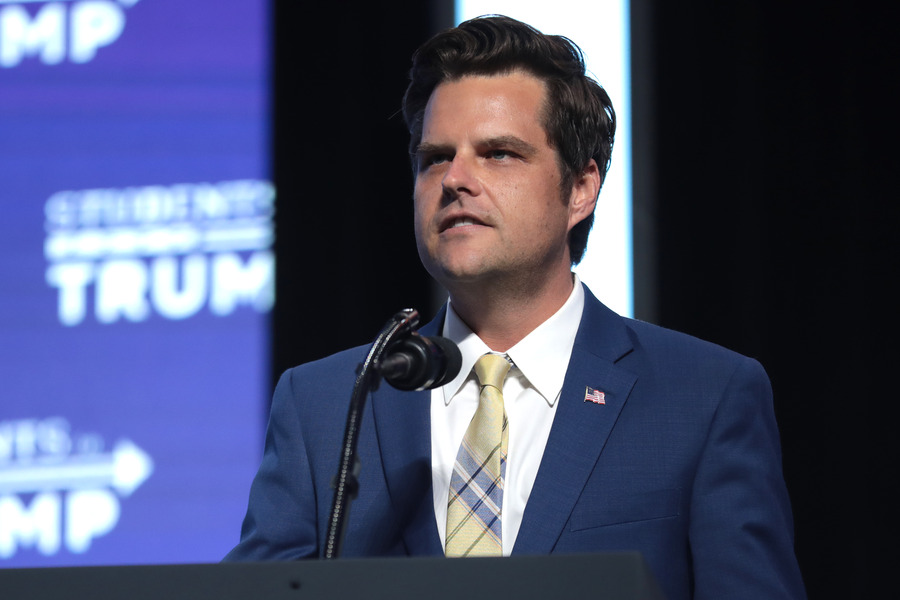Should the U.S. Military Receive the Benefit of the Doubt When Investigating Itself for Alleged War Crimes?
The October 2015 bombing of the Doctors Without Borders (MSF) hospital in Kunduz, Afghanistan has amplified a long-simmering discussion regarding the ability of the American military to objectively conduct internal investigations into war crimes and, where necessary, to hold culpable individuals accountable. Throughout the last fifteen years of conflict, the military has investigated and prosecuted numerous allegations of war crimes—defined here as serious violations of the laws of armed conflict.
Published by The Lawfare Institute
in Cooperation With

The October 2015 bombing of the Doctors Without Borders (MSF) hospital in Kunduz, Afghanistan has amplified a long-simmering discussion regarding the ability of the American military to objectively conduct internal investigations into war crimes and, where necessary, to hold culpable individuals accountable. Throughout the last fifteen years of conflict, the military has investigated and prosecuted numerous allegations of war crimes—defined here as serious violations of the laws of armed conflict. However, the sufficiency, fairness, and objectivity of these internal accountability efforts is regularly debated—from the Abu Ghraib prison abuse scandal to the Haditha courts-martial and the prosecution of Staff Sergeant Robert Bales for the murder of sixteen unarmed Afghan civilians and, now, to the MSF hospital bombing.
MSF reacted to the bombing of its hospital with the “presumption that a war crime [had] been committed” and a declaration that “relying only on an internal investigation by a party to the conflict would be wholly insufficient.” Presumably rejecting this assumption of insufficiency, the United States Army conducted an internal investigation that led to sixteen members of the military receiving disciplinary or administrative action short of court-martial. Following the release of the investigation, media commentators were divided. The L.A. Times, in agreement with MSF’s reaction, described the lack of prosecutions as “inadequate” and characterized it as an “internal review that determines, in effect, ‘nope, we committed no crimes here, so move along.’” The Wall Street Journal took the opposite position, insisting that “no military does more than America’s…to hold its soldiers accountable.”
Which presumption is closer to the truth: Is the United States military’s internal accountability process a sound approach to addressing war crimes or is it a subterfuge used to whitewash atrocities and protect the guilty? Embedded within these debates in the thorny, fundamental question of whether the U.S. military is entitled to the benefit of the doubt when investigating itself for alleged war crimes.
Historical analysis demonstrates the evolutions—and improvement—of the American military’s internal accountability system over time. The genesis of the modern war crime trial is the Leipzig prosecutions that followed the First World War. In these trials, Britain and France agreed to forego extraditions of alleged German war criminals, instead permitting Germany to conduct the prosecutions. The results were discouraging. Of the forty-five alleged war criminals whom the Allies sought to have prosecuted, Germany produced only twelve for trial at the Supreme Court in Leipzig. Of these twelve, six were convicted. All six received light sentences: three were sentenced to less than a year in prison and the two defendants with the harshest prison terms were permitted to escape immediately after the trials. The Allies learned that “entrusting trials of alleged war criminals entirely to the courts of the criminals’ own countries would not produce real justice.” America acted on this conclusion after World War II by supporting the Nuremberg tribunals—both the international military tribunal and the subsequent proceedings—to ensure war crimes accountability took place.
In parallel with this support for international tribunals, the American military held accountable its own alleged war criminals through investigation and prosecution. During World War II the United States military, though often hesitantly and with arbitrary results, conducted a number of such prosecutions. One salient example is the Biscari massacre. On July 14, 1943, Captain John Compton ordered men in his company to execute thirty-six prisoners of war. Nearby and on the same day, though in an otherwise unrelated incident, Sergeant Horace West murdered thirty-seven prisoners of war. General George Patton, the commanding officer of both men, initially refused to believe that they would participate in an unprovoked massacre of prisoners and resisted a court-martial. General Omar Bradley, relying on an additional investigation, ultimately overcame General Patton’s resistance and both Captain Compton and Sergeant West were tried. The results of the trial were inexplicable: the enlisted Sergeant West was convicted of murder and sentenced to life in prison, while the officer Captain Compton was acquitted and went free. (Fred Borch described these crimes and their aftermath in detail in War Crimes in Sicily: Sergeant West, Captain Compton, and the murder of prisoners of war in 1943.) The United States’ problematic handling of the Biscari massacre seemed to reinforce the lesson learned from the Leipzig trials.
Since World War II, however, the United States has dramatically improved its internal accountability efforts. In the Vietnam war “the record of court-martial convictions confirms the U.S. determination to try any discovered violation of the law of armed conflict and, upon conviction, to appropriately punish depredations.” Gary Solis, Military Justice, Civilian Clemency: The Sentences of Marine Corps War Crimes in South Vietnam, 10 Transnational Law and Contemporary Problems 59 (2000). All reported alleged war crimes were investigated, substantiated cases were prosecuted, convictions were often procured, and even military panels in war zone courts-martial often handed down long sentences. In many ways this record is the opposite of Leipzig. Yet substantial civilian clemency undercut these successes, most infamously in the case of Lieutenant Calley, the My Lai platoon leader whose sentence of hard labor for life for dozens of murders was eventually reduced to three years of house arrest. These purely political clemency actions were highly divisive and overshadowed the growing legitimacy demonstrated by the military’s internal accountability process during the Vietnam era.
The United States military’s accountability efforts have continued to improve during the contemporary conflicts in Iraq and Afghanistan. We analyzed two sets of data dealing with these wars: the first, from the Naval Criminal Investigative Service (NCIS), details all founded investigations alleging serious law of armed conflict violations in Iraq and Afghanistan by Sailors, SEALs, and Marines; the second, from the Army Court of Criminal Appeals (ACCA), details all cases of alleged serious law of armed conflict violations by soldiers referred to court-martial. The NCIS data indicates that ninety-two allegations of serious law of armed conflict violations were substantiated, thirty-seven of which led to courts-martial (a number of others received non-judicial punishment), and twenty-eight of which resulted in conviction. The ACCA data shows 100 referred cases, of which seventy-eight resulted in conviction on at least one offense. Many of these cases resulted in substantial sentences, including life imprisonment.
In terms of expertise, American military attorneys are at the forefront of interpreting and applying the law of armed conflict, while American military officers are experienced in, and understand, the critical need to comply with the law of armed conflict in order to win (or not lose) the local population’s support in contemporary conflicts. At a minimum, the American military has shown a persistent willingness to investigate, prosecute, and convict its own members for serious law of armed conflict violations during the past fifteen years.
The great unknown, of course, is the total number of war crimes committed. How many times do violations go unreported? Critics allege these prosecutions simply punish a few bad apples from an otherwise rotten bushel. But this is highly unlikely, because even an allegation of a law of armed conflict violation triggers a mandatory investigation in the United States military. Further, the most common way that illegal behavior is uncovered is through the reporting by soldiers. The heavy emphasis placed on uncovering war crimes coupled with the willingness of soldiers to police their own ranks indicates that the United States military takes seriously, and addresses, law of armed conflict violations.
This is not to say the United States military’s internal accountability process is beyond reproach. Clearly the American military—similar to any other armed force—has a natural prejudice in favor of its own soldiers. But internal investigations, in and of themselves, are not insufficient simply because they are internal. Thus, the relevant question is not whether the American system is perfect but whether an ostensibly “impartial” third-party investigation would be better. Given both the American military’s historic tradition of continually increasing internal accountability and the evidence of persistent willingness to conduct war crimes investigations in contemporary conflicts, finding a more objective or rigorous investigative body seems unlikely. Precisely because no military does more to hold its soldiers accountable, the U.S. military should get the benefit of the doubt when investigating itself for alleged war crimes.



-(1).jpeg?sfvrsn=143eb65_5)


